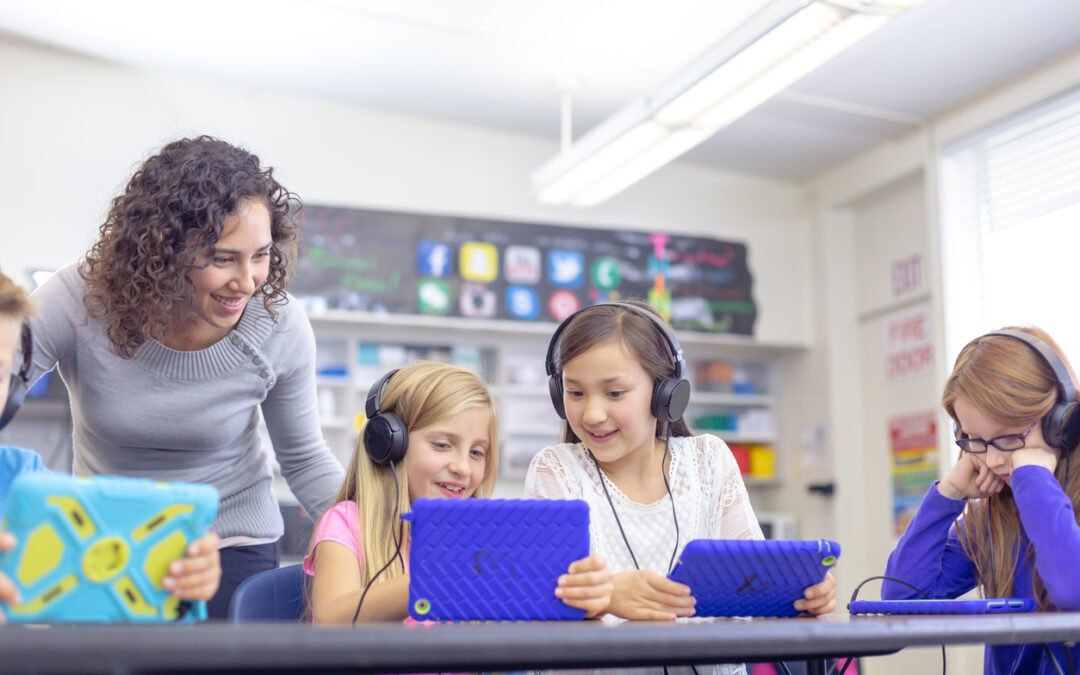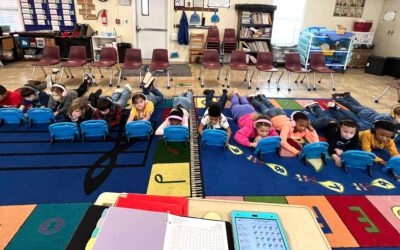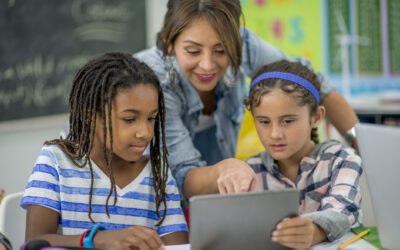Focus on Concepts, Not Tools: Teaching Lifelong Digital Literacy in an Ever-Changing Industry
The key to teaching lifelong digital literacy in an ever-changing technological environment is first and foremost to focus on digital literacy concepts, not tools. For instance:
- Computational thinking. Computational thinking is a methodology that defines and breaks down complex problems, then designs a repeatable solution using algorithmic thinking. Computational thinking is a skill that transcends specific technologies while empowering students with the mindset to solve problems using the available technology, whatever that may be.
- Digital citizenship. While the methods of research, interaction, and presentation of information online may change, the concepts of digital citizenship remain ever-present: don’t participate in cyberbullying, don’t plagiarize, practice skepticism when the trustworthiness of a source is unknown, share information and media in responsible ways, etc.
Online Safety
While the threats students will face change—constantly—online safety is arguably one of the most important lifelong digital skills a child should learn. This subject is tricky because it often requires brushing up on current threats and safety tools. However, there are several lifelong mindsets and skills you can teach students that will enhance their skills for staying safe online.
- Skepticism. It’s important for students to understand that online environments offer predators and scammers an opportunity for obfuscation that can be surprising and scary. Teaching students that people online are rarely who they say they are is an important part of lifelong online safety. Teaching them to interact online only with people they know in real life or interacting in ways that don’t compromise their privacy or security is an imperative lifelong safety skill.
- Privacy. Another essential lifelong digital literacy skill is understanding how and why to maintain privacy online. Students should understand what information is safe to share—and when—and what information should never be shared online. They should also understand the concept that nothing shared digitally is private regardless of whether that information is shared via social media, text messaging, email or otherwise.
Keyboarding Skills
While keyboarding may some day become obsolete, that day is certainly not today. Keyboarding is an important skill for students not only to provide digital literacy foundations for the future, but also for their immediate performance in education. Keyboarding offers a gateway to uncountable digital skills. Without keyboarding there is no coding, communication, research or interaction. Keyboarding is a foundational skill that is necessary to build lifelong digital literacy skills—and that, at least for now, is a high-impact lifelong skill.
Multimedia Use, Understanding & Creation
Digital content takes many forms, and understanding how to use, engage with and create these different forms of multimedia is a powerful lifelong digital literacy skill for students. Whether it’s understanding how to use the controls on a digital video player or to sync audio files with a slideshow presentation, the ability to utilize various multimedia empowers students with the foundational concepts to understand evolving forms of multimedia in the future.
Databases & Storage
Finally, an additional lifelong digital literacy skill for students is understanding databases and storage. While the methods of storage and information recall may change, the concept of requiring storage and how to procure files from that storage is integral to technological understanding.
Final Thoughts
The digital landscape is constantly changing, but that shouldn’t deter teachers or administrators from utilizing a digital literacy program. Instead, decision-makers should focus on a digital literacy program that focuses not primarily on tools (such as how to use Microsoft Word and Internet Explorer), but on lifelong concepts upon which digital skills can be built far into the future.

Learning.com Team
Staff Writers
Founded in 1999, Learning.com provides educators with solutions to prepare their students with critical digital skills. Our web-based curriculum for grades K-12 engages students as they learn keyboarding, online safety, applied productivity tools, computational thinking, coding and more.
Further Reading
Technology Skills to Teach Gen Z for Future Success
Gen Z and Gen Alpha will enter a workforce that looks very different than the one their parents and grandparents experienced. Educators know it’s...
Digital Skills for North Carolina Students
In our district, like most others, the use of digital learning tools has catapulted since the pandemic. With students online more than ever, it’s...
Why Teaching Kids to Code Supports Community Development
Teaching kids to code undoubtedly prepares them for the future of work. But what does this mean for the communities that helped them become career...




